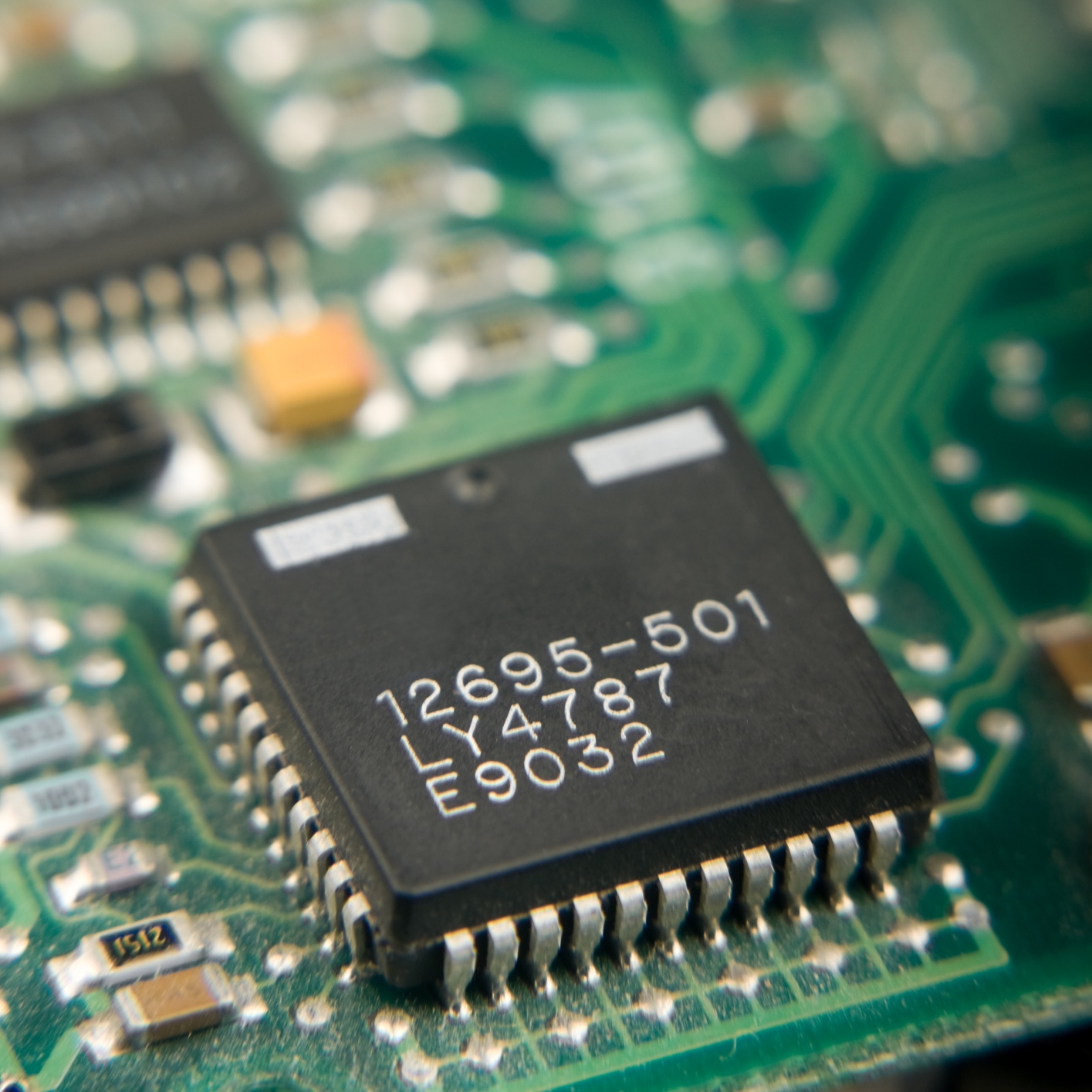Technology
When Broadcom, Qualcomm, NXP, Intel and AMD Are All in the Same Rumor Mill at Once

Published:
Last Updated:

The world of semiconductor mergers was trying to move from already large up to massive. Now it seems like there may be at least some more rational exuberance in the semiconductor segment of technology that may be coming to light.
24/7 Wall St. has followed the Broadcom-Qualcomm merger saga for some time, but past mergers and new rumors around Intel and Qualcomm (and even AMD) and other recent news reports have put the semiconductor and chip sectors into play for investors. That also puts a lot of overhanging risk on the stocks if the merger and technology landscape settles back into a status quo position.
Broadcom Ltd. (NASDAQ: AVGO) had to formally withdraw its $117 billion offer to acquire Qualcomm Inc. (NASDAQ: QCOM) after President Trump moved to block the merger over national security concerns. This was easy to see coming, and frankly Broadcom seemed too stubborn and aggressive to heed that risk.
Qualcomm had fought off the merger from being a friendly deal, and when it raised its purchase price to acquire NXP Semiconductors N.V. (NASDAQ: NXPI), it put even that much more of a block up since Broadcom had said that Qualcomm could close on its merger or not close on the merger with NXP, but its stipulation was that Qualcomm could not raise its purchase price. Qualcomm did raise that purchase price.
This would have seemed to be the end of the big chip mergers, but just like on an infomercial — wait, there’s more!
Intel Corp. (NASDAQ: INTC) has been rumored to be interested in jumping in to buy Broadcom. Intel CEO Brian Krzanich was on CNBC’s Mad Money and he all but dismissed the rumors without formally and indefinitely denying them. His view is that Altera and Mobileye were already the two largest acquisitions, and the company is “heads down on making those successful and right” as Intel’s growth engines for the future. Krzanich also said that 5G is important, but that that the company already has the end-to-end products from data centers to modems.
And to add even more fuel to the fire, now there is word that Qualcomm’s former board chair, Paul Jacobs, has approached investors to take Qualcomm private. For the record, Qualcomm is a $90 billion company with its shares just at $61, so this would have to be all debt-financed.
Qualcomm ended its calendar year 2017 (fiscal year 2017 ended in September) with over $35.4 billion in cash and short-term investments and another $4.4 billion in long-term investments. It also had $19.4 billion in long-term debt and other long-term liabilities and deferred long-term liability charges of $9 billion. The question for now is how, even if some swap was made with certain existing liabilities and assets (and considering a with/without NXP Semiconductor merger), Jacobs could come close to raising $90 billion or more.
The obvious statement would be to say that wanting to take a company private is far different from being able to take a company private. Jacobs is said to own less than 1% of the company, and the report that Softbank might have been an investor gets complicated in that Softbank already acquired ARM Holdings for more than $30 billion. Michael Dell managed to take Dell private for $25 billion, and that deal was very hard to get closed in 2013. Then Dell was repackaged into a now $60 billion public vehicle tracking company of Dell Technologies Inc. (NYSE: DVMT). This “new Dell” is really the packing of EMC, Dell and a VMware stake.
And, as if it couldn’t get any more complicated, Advanced Micro Devices Inc. (NASDAQ: AMD) has been the subject of ongoing rumors that one or several chip companies may want to acquire the number-two processor maker and a leader in graphics. As far as what AMD might be worth, its current market cap of $11 billion would be tiny compared to the prior deals that have been pursued.
All things AMD being said, to acquire AMD still likely would need to be done by an American, Canadian, or other “friendly country” company to not have a Committee on Foreign Investment in the United States review. At first blush, any such review likely would end in a ruling that AMD also represents a credible national security risk. It might seem odd that AMD would be blocked because of its size, but smaller deals already have been blocked, and AMD is the only other real legacy processor company (non-ARM that is) out there when it comes to computers, laptops and servers.
In the world of semiconductor mergers, let’s just say it’s complicated. It’s also likely far from over.
Thank you for reading! Have some feedback for us?
Contact the 24/7 Wall St. editorial team.